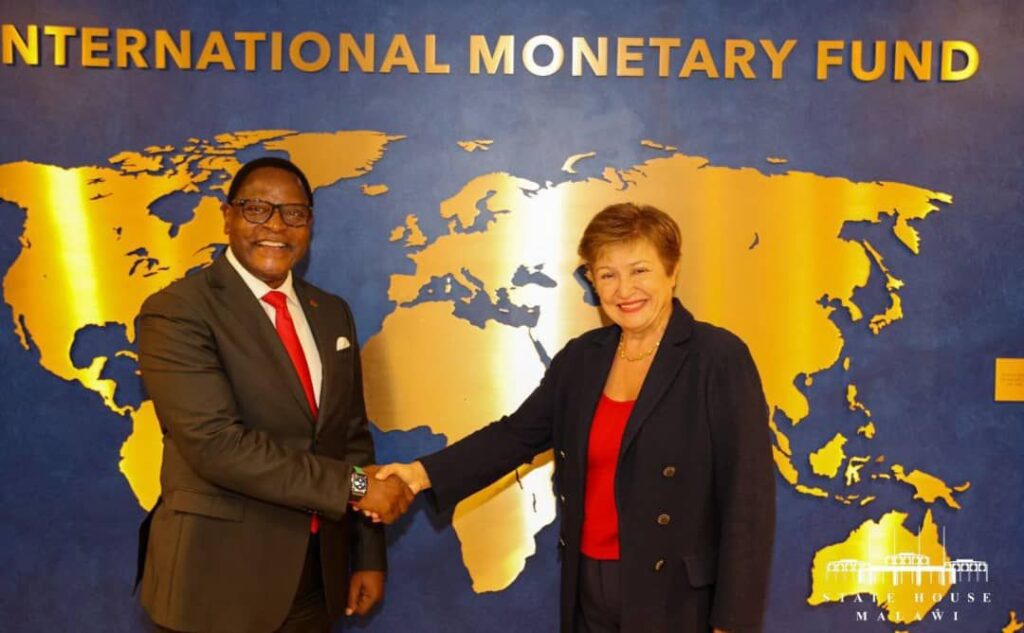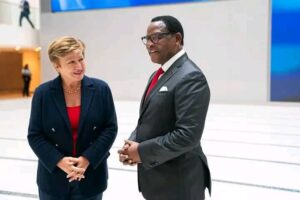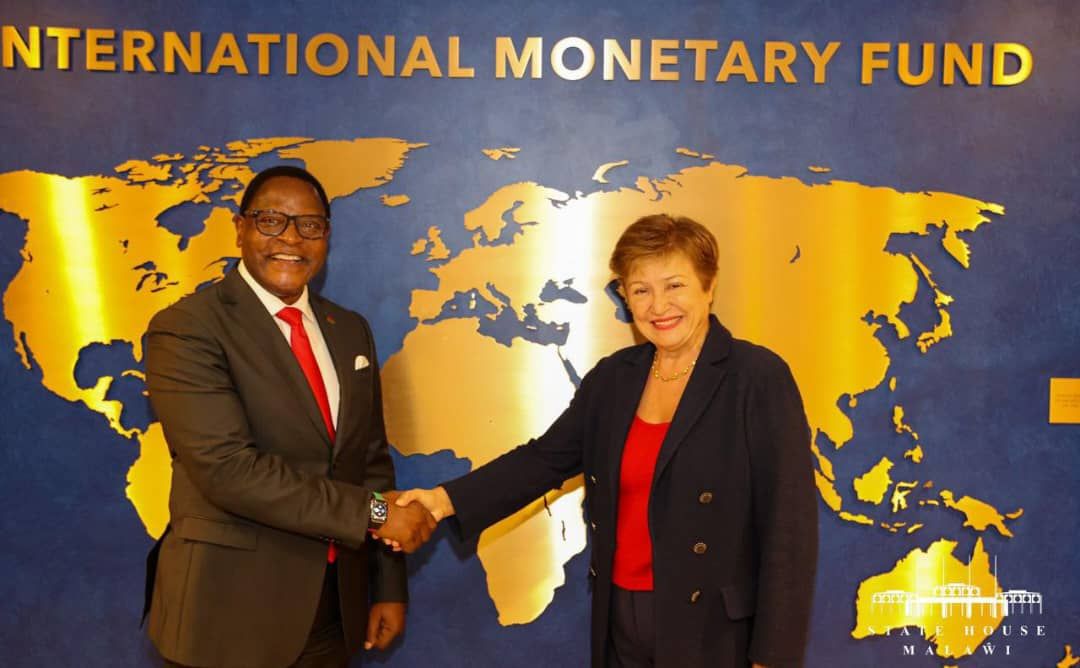By Alfred Chauwa-Senior Business Journalist
Malawi State President Dr Lazarus McCarthy Chakwera has commended International Monetary Fund (IMF) Extended Credit Facility (ECF) program for unlocking various funding opportunities to Malawi.
Chakwera said this during a meeting with IMF Managing Director Kristalina Georgieva at IMF Headquarters in Washington, D.C. The meeting focused on Malawi’s implementation of the IMF-supported Extended Credit Facility (ECF), approved in September last year.

The president said Malawi is currently enjoying funding opportunities because the country is in good books with the IMF through ECF program.
He said, the Extended Credit Facility (ECF) Programme that his Government is implementing approved by the Executive Board of the Fund in November 2023 has changed economic landscape of the country.
The president said, the journey to that day was not easy, and if it looked improbably to succeed with untiring support and efforts of the IMF Mission Team, Malawi’s Development Partners, the IMF Executive Board, and Malawi team.
“And the great thing is that following its approval, this Programme has triggered the much-needed financial support from our development partners, among whom special mention should be made of the outstanding responsiveness of the World Bank and the African Development Bank, banks that have time and time against proven themselves capable of moving with the kind of velocity, agility, flexibility, and solidarity that other players in the global financial system struggle to achieve,” he said.
During the meeting , the president assured IMF that his government remains committed to strengthening resilience against climate-related shocks by addressing governance weaknesses.
The programme seeks to restore a stable and sustainable macroeconomic position, aligning with Malawi’s vision for strong and durable wealth creation and growth, as outlined in Malawi 2063. The two-year arrangement, worth $174 million, also aims to catalyse grant financing from other development partners.
Chakwera acknowledged challenges in meeting some ECF targets due to external shocks on the Malawian economy. “Malawi’s economy is still largely agro-based, and negative developments in this sector distort economic performance,” he explained.
The President cited climate-related shocks, such as the El Niño phenomenon, which affected 5.7 million people and created demand pull inflation. He also mentioned a constrained national budget due to lower-than-expected revenue collections.
Despite these challenges, Chakwera expressed optimism about restoring macroeconomic stability and debt management sustainability. “We believe in our ability to put government spending back on track…to take the completion of the First Review out of jeopardy.”
Chakwera’s meeting with Georgieva followed his successful engagements in New York, including his address at the 79th Session of the United Nations General Assembly.




